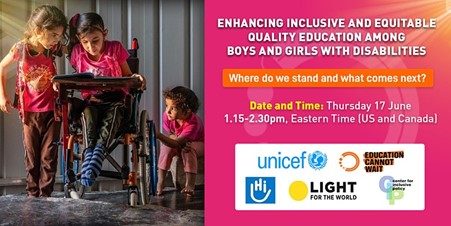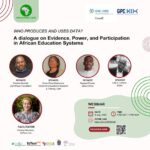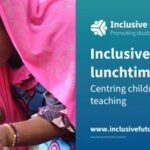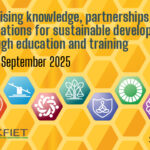
Enhancing inclusive and equitable quality education among boys and girls with disabilities. Where do we stand and what comes next?
Eliminating disparities across all levels of education and ensuring equal access to boys and girls with disabilities is a central element of the 2030 Agenda and Convention on the Rights of Persons with Disabilities. However, the COVID-19 outbreak has hampered progress made in past years, and in some cases, reversed these achievements. In contexts, like those affected by conflicts and climate change, the Pandemic has created additional barriers to access to education and learning by boys and girls with disabilities. Therefore, ensuring that boys and girls with disabilities are not left even further behind in the aftermath of this Pandemic, must be at the top of the policy agenda.
While the commitments of Member States to ensure equality in access and learning by boys and girls with disabilities is a necessary condition, the Forum ‘Disability Inclusive Education Forum – Reaching the most marginalised’ and its recommendations highlight that policies and interventions must build on comprehensive data on boys and girls with disabilities and the learning environment. Similarly, programming on education, particularly in emergency settings, must embed disability inclusion to ensure that boys and girls with disabilities, as well as their parents and caregivers, can shape interventions, participate and learn on an equal basis with others.
Objectives and Rationale:
The event aims to discuss how development and humanitarian actors are trying to address existing gaps highlighted, among others, in the Global Education Monitoring Report 2020, Inclusion and Education: all means all.
Organized by Education Cannot Wait (ECW), Humanity & Inclusion (HI), Light for the World, the Center for Inclusive Policy (CIP) and the United Nations Children’s Fund (UNICEF), this event will present approaches that can help fill in existing knowledge gaps on access to education and learning of boys and girls with disabilities, their learning environment and how it meets their needs. Also, the event will discuss evidence and case studies concerning programming on education and how disability inclusion has been embedded in both design and implementation.
Therefore, the event represents an opportunity to
- share evidence from action-oriented research and programming, in both development and emergency contexts, with policymakers, practitioners and civil society representatives;
- present and discuss promising tools and approaches, which can help remove those barriers still hampering access to education and learning of boys and girls with disabilities.
The events will be available in Arabic, English, French, Spanish. Closed captions and ASL interpretation will be provided.




